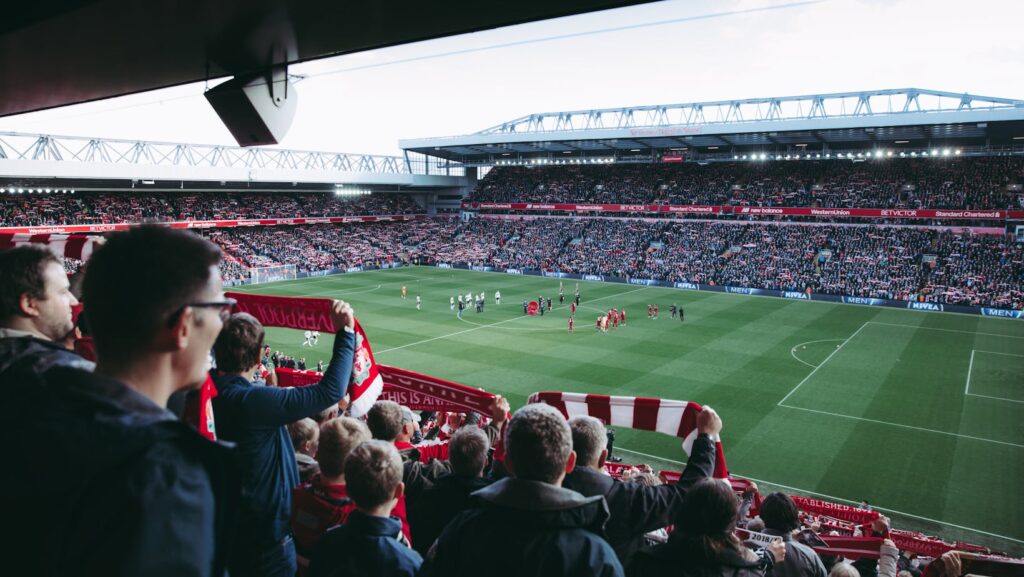
Being deeply involved in the world of professional sports, I’ve always been fascinated by the intricate dynamics of sports sponsorship. Understanding the various ways to analyze professional sports sponsorship is crucial for both teams and brands looking to form successful partnerships. From evaluating brand alignment to measuring return on investment, the analysis of sports sponsorships plays a pivotal role in shaping the future of sports marketing strategies.
Ways To Analyse Professional Sports Sponsorship

Sponsors invest in sports partnerships as a means to enhance brand visibility, reach target audiences, and align with the values and image of the sports entity. By associating with successful and popular sports teams or events, sponsors aim to leverage the passion and loyalty of fans to enhance brand perception and drive growth.
In scrutinizing professional sports sponsorships, understanding the primary objectives and goals of sponsors is pivotal. Sponsors enter into these relationships with specific aims in mind, which may include increasing brand awareness, engaging with target consumers, driving sales, or reinforcing brand loyalty.
Key Metrics for Assessing Sponsorship Value
When analyzing professional sports sponsorships, it’s crucial to focus on specific metrics that can provide valuable insights into the effectiveness and impact of these partnerships. Here are key metrics to consider for assessing sponsorship value:
Brand Exposure and Media Value
In sports sponsorships, brand exposure plays a vital role in determining the visibility and reach of a sponsor’s brand. To assess brand exposure accurately, I look at metrics such as the number of logo impressions, placement visibility, and overall media value generated through sponsorships. By analyzing the media coverage and brand visibility during sporting events, I can quantify the exposure gained by sponsors, allowing for a better understanding of the value derived from the partnership.
Audience Engagement Metrics

Measuring audience engagement is essential for evaluating the level of interaction and connection between the sponsor’s brand and the fans. I focus on metrics like fan attendance, social media mentions, website traffic, and audience interactions during events. By tracking these engagement metrics, I can gauge the effectiveness of the sponsorship in capturing the audience’s attention, fostering loyalty, and creating meaningful interactions that resonate with the target demographic.
Social Media Impact
In today’s digital age, social media presence is a significant aspect of sports sponsorships. I analyze the impact of sponsorships on social media platforms by monitoring metrics such as the number of impressions, shares, likes, comments, and overall engagement levels. Assessing the social media impact helps me understand how effectively sponsors are leveraging online channels to amplify brand messaging, connect with fans on a personal level, and drive conversations that extend beyond the physical boundaries of sporting events.
By focusing on these key metrics for assessing sponsorship value, I can provide a comprehensive analysis of the effectiveness and ROI of professional sports sponsorships. Each metric offers unique insights into different aspects of the partnership, allowing for informed decision-making and strategic optimization to maximize the benefits of sports sponsorships.
Lessons from Top Sponsors in Various Sports

Studying successful professional sports sponsorships provides valuable insights into effective strategies and best practices. Let’s delve into key lessons gleaned from top sponsors across different sports:
- Nike’s Partnership with NBA:
- Nike’s collaboration with the NBA showcases a prime example of successful sports sponsorship. By strategically aligning its brand with the NBA, Nike leverages the global appeal of basketball to reach a diverse and engaged audience. The partnership not only enhances brand visibility but also highlights the importance of connecting with fans on a personal and emotional level.
- Adidas’s Sponsorship of Major Football Clubs:
- Adidas’ long-standing sponsorship deals with major football clubs like Real Madrid, Manchester United, and Bayern Munich exemplify the significance of partnering with iconic sports entities. The brand exposure gained through these partnerships is immense, extending to millions of fans worldwide.
Analyzing these prominent case studies highlights the diverse approaches to successful professional sports sponsorships adopted by leading brands. By incorporating elements of brand alignment, audience engagement, and overarching marketing strategies, sponsors can optimize their partnerships and achieve significant returns on investment in the dynamic world of sports sponsorship.
